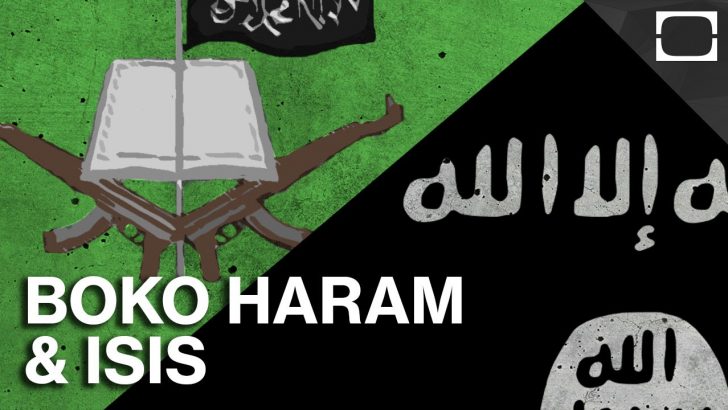Boko Haram is a house divided, writes Paul Keenan
Nigeria woke up at the start of August to news that the blight of their nation that is Boko Haram had, apparently, gained a new leader.
On Tuesday, August 2, security analysts monitoring so-called Islamic State’s (ISIS) online presence picked up on an interview with a figure identified as Abu Musab al Barnawi in which he was announced as the man to lead Boko Haram from here on.
The same interview carried very troubling quotes from the leader as he set out his stall for the new direction of a group that has already claimed at least 30,000 lives while displacing more than two million in its campaign to claim all of Nigeria for Islam.
Insisting that Nigeria is in the grip of a conspiracy to Christianise the nation, al Barnawi stated that Boko Haram would work to counter this threat. Ordering his followers to actively target Christians, the Boko Haram chief vowed to “booby-trap and blow up every church that we are able to reach, and kill all of those who we find from the citizens of the Cross”.
Rhetoric
Laced with anti-Christian invective, on the surface the al Barnawi statement comes over as more of the same fundamentalist rhetoric. Just this past March Boko Haram vowed allegiance to ISIS, more than sufficient proof of the extremist behaviour it wishes to emulate. However, as days passed from the threats of Abu Musab al Barnawi, a deeper and more sinister story has begun to emerge from the killing fields of Nigeria.
The understanding of this narrative lies with another statement, coming a day after that of the new leadership. In reaction to the news, an audio recording purporting to come from Boko Haram’s long-time chief, Abubakar Shekau, denounced al Barnawi’s appointment in the strongest terms.
Describing the new chief as “an infidel” and his installation as “a coup”, Shekau spoke in terms of being no less surprised than the rest of the world at the development.
“Today, I woke up to see one who is an infidel whom they want me to follow,” the recording declared. “No, I won’t. We cannot subject ourselves to people who are in ignorance of all holy books and teachings.”
Rumblings of division within the ranks quickly emanated from security experts and the media in response, with questions arising as to what this meant for Boko Haram itself. The government of President Muhammadu Buhari boldly suggested that as the group is already on the back foot as a result of strong action by Nigeria’s military, the appointment of al Barnawi would do nothing to halt its inevitable decline.
Sadly, the government is alone in this assessment.
Others close to the conflict in Nigeria have picked over the available evidence to conclude that the move, certainly approved at the highest levels within ISIS, is a major strategy shift to launch Boko Haram in a bold new direction.
Since 2009, with the death in police custody of Boko Haram’s founder, Mohammed Yusuf, the terror group has been guided in its tactics solely by Shekau, a former lieutenant of Yusuf’s.
From market place bombings and the kidnapping of the Chibok schoolgirls, to the use of children as suicide bombers, the ruling hand of dedicated jihadist Shekau lay over all. Crucially, however, Shekau is also a known takfiri, a Sunni Muslim who readily denounces other Muslims as apostates.
Thus, under his command Boko Haram has slaughtered Muslims with a ready eagerness, bombing mosques and claiming the lives of imams deemed ‘impure’ by Shekau’s own extremist standards. To date, more Muslims than Christians have died in Nigeria at the hands of Boko Haram.
Somewhat bizarrely then, it was this Muslim bloodletting which appears to have tipped the balance for ISIS in favour of ousting Shekau after his behaviour was reported up the chain of command by one of his own subordinates (no doubt afraid that he would go the way of other Boko Haram members who have suffered Shekau’s purist wrath).
Given ISIS’s own penchant for wanton and indiscriminate slaughter, however, this train of reasoning is hard to accept in isolation, leading one to conclude that there is something else at play.
Taking Abu Musab al Barnawi’s promises of Christian slaughter together with the assertion by a number of investigators in Nigeria that he is, in fact, the son of Mohammed Yusuf, one is suddenly presented with the prospect of ISIS hitting the ‘reset button’ with Boko Haram to mould a terrifyingly effective franchise in West Africa. What the group has been able to achieve to date will now be augmented by the undeniably efficient management that ISIS brings to its operations.
At least one security expert in the country has urged President Buhari to recognise this reality and to immediately beef up security in large urban centres which in all likelihood will become attractive to the suicide bombers of a reinvigorated Boko Haram.
A former military man himself, Mr Buhari should reasonably acknowledge the risk. Tragically, however, the president remains engaged with another fight, and one inextricably linked to Boko Haram.
Since the commencement of his presidency in May 2015, President Buhari has been leading a major drive against corruption in high places in Nigeria. Numerous public figures have been arrested and, at the time of writing, the Speaker of the House of Representatives is in the spotlight over alleged corrupt practices involving the nation’s budget.
None of this purging has, however, prevented $2.1 billion destined for the fight against Boko Haram from disappearing from the public coffers, leaving an already ill-equipped military no better prepared to meet the terrorist threat.
All of this leaves just the hope that the Shekau – al Barnawi split will lead to debilitating in-fighting across the Boko Haram ranks. But it is a slim hope when set against those voices asking if Boko Haram is set to become even more dangerous than before.
It certainly will be for Christians.


 Paul Keenan
Paul Keenan
